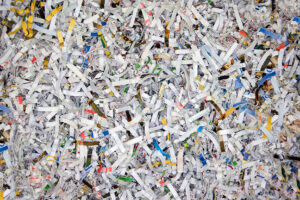Skilled Nursing Facilities (SNFs) play a crucial role in providing specialized care for residents with various healthcare needs. As guardians of patient well-being, it is imperative for SNFs to establish robust protocols for medical waste management. This article explores the key considerations and requirements for managing medical waste in skilled nursing facilities, emphasizing the importance of compliance, safety, and environmental responsibility.
I. Understanding Medical Waste in Skilled Nursing Facilities:
Medical waste generated in SNFs encompasses a diverse range of materials, including used needles, contaminated dressings, pharmaceutical waste, and potentially infectious items. Given the unique healthcare services provided in these facilities, proper management of medical waste is not only a regulatory obligation but an essential component of ensuring resident and staff safety.
II. Regulatory Compliance: A Non-Negotiable Aspect:
Skilled Nursing Facilities must adhere to a myriad of federal, state, and local regulations governing medical waste management. Key regulations include:
a. Occupational Safety and Health Administration (OSHA): SNFs must comply with OSHA’s Bloodborne Pathogens Standard, which outlines safety measures for handling and disposing of potentially infectious materials.
b. Environmental Protection Agency (EPA): The EPA regulates the disposal of pharmaceutical waste, emphasizing the need for proper segregation and disposal methods.
c. Department of Transportation (DOT): If SNFs transport medical waste off-site, compliance with DOT regulations for packaging, labeling, and transportation is mandatory.
III. Developing a Comprehensive Medical Waste Management Plan:
a. Segregation and Containerization: SNFs should implement a system for the proper segregation of different types of medical waste. Use color-coded containers and labels to ensure easy identification and separation of sharps, infectious waste, and pharmaceutical waste.
b. Staff Training and Education: Ensuring that staff is well-informed about the proper procedures for handling and disposing of medical waste is paramount. Regular training sessions should cover segregation, containerization, and emergency response protocols.
c. Secure On-Site Storage: Establish secure on-site storage areas for medical waste containers. Ensure that these areas are inaccessible to unauthorized personnel and meet regulatory standards for containment.
IV. Safe Handling of Sharps:
a. Sharps Container Placement: Position sharps containers in areas where they are easily accessible to staff but out of reach of residents. This prevents accidental needlestick injuries and ensures safe disposal.
b. No Recapping Policy: Implement a strict policy against recapping needles. Used needles should be disposed of directly into sharps containers to minimize the risk of injuries.
V. Proper Disposal of Pharmaceutical Waste:
a. Segregation and Identification: Separate pharmaceutical waste from other medical waste. Clearly label and store pharmaceutical waste in designated containers to prevent cross-contamination.
b. Compliance with EPA Guidelines: Adhere to EPA guidelines for the disposal of pharmaceutical waste. This may include the use of reverse distributors or authorized pharmaceutical waste disposal services.
VI. Collaboration with Certified Medical Waste Disposal Services:
Engaging certified medical waste disposal services ensures that SNFs meet compliance standards while outsourcing the complex task of waste disposal to experts. These services handle collection, transportation, and disposal, allowing SNF staff to focus on resident care.
VII. Documentation and Record-Keeping:
Maintain detailed records of medical waste disposal activities. This documentation should include the type and quantity of waste generated, dates of disposal, and proof of compliance with regulatory guidelines.
Conclusion:
In the realm of skilled nursing facilities, the management of medical waste is not just a regulatory requirement; it is a fundamental aspect of ensuring resident and staff safety. By establishing comprehensive waste management plans, adhering to regulatory guidelines, and collaborating with certified disposal services, SNFs can navigate the complexities of medical waste management with precision and responsibility. Remembering the importance of staff education, secure on-site storage, and proper handling of sharps and pharmaceutical waste contributes to a healthcare environment that prioritizes patient well-being, regulatory compliance, and environmental responsibility. As guardians of health and safety, skilled nursing facilities play a pivotal role in upholding the highest standards in medical waste management.










